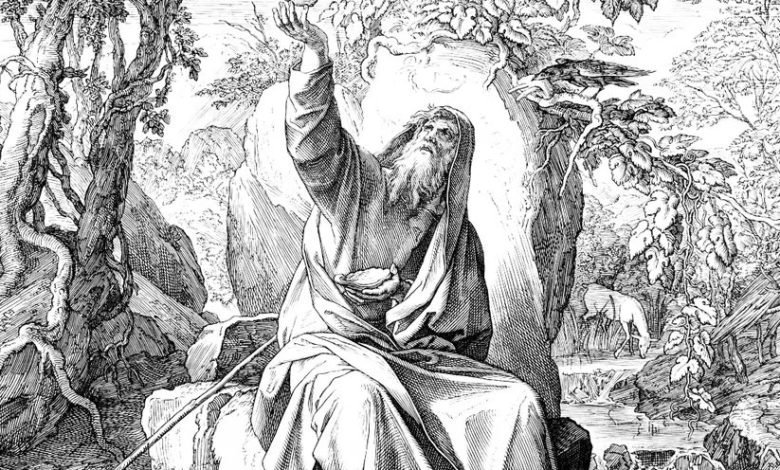
Who was Enoch in the Bible?
Enoch (also known as Idris) is a biblical character mentioned in Genesis, chapter 5. He was the ancestor of Noah, the famous prophet.
According to the Bible, Enoch lived 365 years and “walked with God and was not found, for God took him away.” This sentence traditionally means that Enoch was taken to heaven without experiencing death. Only two people in the Bible, Enoch and Elijah, seem to have been taken directly to heaven without experiencing death (unless we assume that these two are the martyrs who die briefly in Revelation 11:7-12).
Most of us know the second one, Elias. After the end of his mission, this famous prophet received a fiery chariot from heaven that took him to heaven and left Elisha to continue his mission (2 Kings 2).
But what about Enoch? Most of us don’t know much about Enoch, another person who was taken directly to heaven. He appears in Genesis and goes to heaven as soon as he enters the scene.

Who was Enoch?
According to the Bible, Enoch was the great-grandson of Adam and the great-grandfather of Noah, who lived a holy life in God’s service (Genesis 5). He was also the father of Methuselah, the longest-lived of men (Genesis 5:27), and had other children.
After 365 years on earth, according to the Bible, God “took him” (Genesis 5:24). The verb “carry” in this sentence means to lift up or abduct, similar to what happened to Elijah, another prophet.
Later in the “Hall of Faith” in Hebrews 11, Enoch’s name is mentioned alongside other great men like Abraham.
Because of his strong faith, he seems to have escaped death.
but why? Other elders in the Hall of Faith in the book of Hebrews experienced death. Why did this mysterious figure get away with it (unless he is one of the two witnesses)?
First, as argued here, Enoch is an example of what occurs in the “rapture” (Hebrews 5:11). In this event, during the apocalypse, God will take believers to heaven.
Christians disagree about exactly when the Rapture will take place in the end times (before the seven year tribulation, in the middle of it, after it, etc.), but at some point in the end times God will lead believers like Enoch to Heaven will take.
Second, Enoch lived several hundred years before the flood. In this period, we see a severe moral fall of the inhabitants of the earth. Given that human lifespans at the time were in the hundreds of years, some Christians have speculated about the possible existence of a “vapor dome” around the Earth that blocked out harmful gamma rays and created a temperate climate. Maybe God took Enoch to heaven to save him from the storm that would occur a few hundred years later.
Third, like Elijah in Ahab’s time, we see Enoch as a man of faith in the midst of a corrupt generation. Elijah is the only remaining prophet from God (1 Kings 18:22) and he stands alone against 450 enemy prophets.
Questions to ponder:
Why do you think God took Enoch directly to heaven?
Does the story of Enoch have a message for us?
How can we have faith like Enoch?
Enoch’s life: Enoch is mentioned in the Torah book as Noah’s middle father. After living for 365 years, he mysteriously went to God.
Enoch’s role in religious history: Enoch is mentioned in the Bible as an example of faith and piety. His life shows how communication with God and following God’s commandments can help to improve human beings.
Effects of Enoch: As an example of longevity and steadfastness in faith, Enoch has had profound effects on later societies and religious history. His life and actions make people think about a reality deeper than worldly life and the true meaning of faith in God.
Conclusion:
Enoch, as one of the most important and influential biblical characters, is an example of a faithful and pious life. By examining his life and role, we can have a deeper understanding of the concepts of faith, piety and relationship with God in religious history and benefit from Enoch’s experiences for our spiritual life.
Today in the article : Who was Enoch in the Bible? We reviewed useful information about the Bible and the way of Jesus. If you wish, you can view other articles of Ali Vahidi about Christianity





